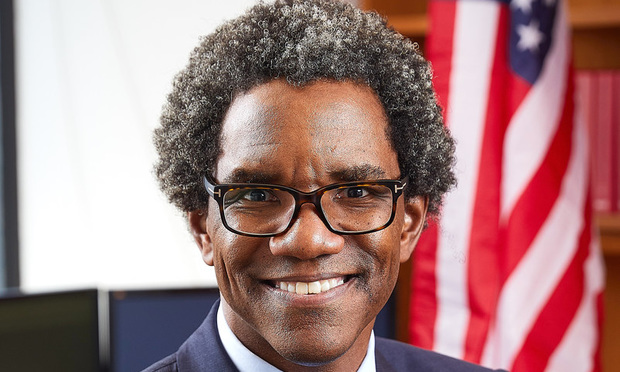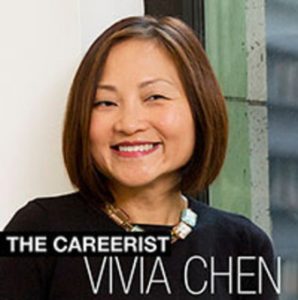This Ropes & Gray Leader Is Running for NY Attorney General. Who Knew?
Why does Keith Wofford, on leave from Ropes & Gray where he's served as co-head of its New York office, want to enter a political race that he's almost sure to lose?
October 23, 2018 at 04:37 PM
6 minute read
 Keith Wofford
Keith Wofford
It's only two weeks away from the New York attorney general election, arguably the most powerful AG position in the country at this moment, and the headquarters of the Republican candidate is eerily quiet. When I arrived at its Midtown post in New York, there was no receptionist, no ringing phones, no loud voices (actually, no voices)—none of the hub-hub that you'd expect from campaign central. In fact, I had to poke into a couple of near-empty rooms to announce my appointment with Keith Wofford, the GOP candidate.
Until he decided to run for the AG post, Wofford was co-head of Ropes & Gray's 300-plus-lawyer New York office. A bankruptcy and creditors' rights lawyer, Wofford is now on leave from the firm.
By most accounts, Wofford is expected to lose to Letitia James, his Democratic opponent, the New York City public advocate and protégé of Gov. Andrew Cuomo. (In an Oct. 1 Siena College poll, James leads Wofford, 50 percent to 36 percent.) For starters, Wofford has little name recognition—anywhere. Even in the rarefied circles of Big Law, where he's one of the few black partners, he seems to have kept a low profile.
Plus, it's unlikely to help him with minority voters that he's a black Trump supporter. (According to the New York Times, Wofford is “the only statewide Republican candidate who would admit to voting for President Trump,” adding that he's also donated to Democrats.)
So who is Wofford? Why is he running for attorney general of New York? And what does he think of the issues of the day—like Trump's tax investigation and affirmative action. Below is an edited version of our conversation:
 You're the co-head of a major office of a major firm. You're making buckets of money [Wofford reported earning between $4.35 million and $4.45 million in 2017 on his disclosure form]. Why do you need to run for AG? Are you bored with practice? No, not bored! I love practicing law and the firm. I'm running because it's important for someone to come from the outside. That's the only way to deal with the corruption in Albany and locally. We've seen three attorney generals in a row who talked about corruption and did nothing. There was [Eliot] Spitzer, who resigned in disgrace, [Andrew] Cuomo, who disbanded the commission looking into corruption, and [Eric] Schneiderman, who also resigned in disgrace. There's a crisis of confidence, and we need someone who's not part of the political machine.
You're the co-head of a major office of a major firm. You're making buckets of money [Wofford reported earning between $4.35 million and $4.45 million in 2017 on his disclosure form]. Why do you need to run for AG? Are you bored with practice? No, not bored! I love practicing law and the firm. I'm running because it's important for someone to come from the outside. That's the only way to deal with the corruption in Albany and locally. We've seen three attorney generals in a row who talked about corruption and did nothing. There was [Eliot] Spitzer, who resigned in disgrace, [Andrew] Cuomo, who disbanded the commission looking into corruption, and [Eric] Schneiderman, who also resigned in disgrace. There's a crisis of confidence, and we need someone who's not part of the political machine.
I get that we need an outsider to fight corruption. But aren't Democrats and Republicans both part of the culture of corruption in New York? I'm going after everyone. I'm an independent person. This is not a partisan crusade.
But why did you choose to align with the GOP? I mean, it must be lonely being a black Republican in New York. I don't look at this from a numbers or popularity perspective. I look at it from the perspective of ideas. One of the biggest problems is our public school system. The Democrats have failed students, especially students of color. If the Democrats had their way, there'd be no charter schools, and we need to give parents that choice.
So you became a Republican because of education, and you think that Republicans are doing a better job at education. OK. Whatever. But let's get back to the attorney general job. The current acting AG Barbara Underwood is looking into Trump's family foundation and taxes. Are those things that you'd continue under your watch? That's a good question. Look, no one is above the law. And given the magnitude of what's come out about the tax investigation by the New York Times, it merits scrutiny. But you don't ramp up or down the charges based on whether you agree or disagree with someone. You soil the credibility of the office of the AG if you do that.
So you haven't given any kind of pledge to Donald Trump about the investigations? No pledges of loyalty.
Let's talk about your career. You came from a very modest background, growing up in Buffalo, where your father was a factory worker. You then went Harvard at age 17, then Harvard Law School. How did you beat the odds? I didn't listen to anyone who said I couldn't do it. My parents never set artificial limits on us. I also got help from leaders in Buffalo, the African-American community and the business community there. There were a couple of breaks here and there that made a difference.
You seem to have had a smooth career. You've worked at the most elite firms—first, Wachtell Lipton and now Ropes & Gray. Did you experience racism along the way? Of course. It's out there, but the question is how you deal with it. You have to be level-headed and not let it distract you from your goals. Sometimes you don't know why someone says something or does something that seems offensive. Maybe it was racism, maybe not. You can't let it create a mental block.
Why aren't there more minorities who are equity partners in Big Law? It's a pipeline issue—not enough people coming through the system. Then, firms are not good at integrating people into the firm's social network. There are lots of factors as to who gets the best assignments.
You're a conservative, so what do you think of the current litigation against Harvard that's challenging race as a factor in admission? I wish people would not look to litigation as a solution in these matters. I haven't looked at the evidence about the case. But I have a lot of gratitude towards Harvard because they did so much for me. I really can't criticize Harvard.
Do you think you've benefited from affirmative action in your life? Probably.
Any words of advice for young people of color who'd like to follow your path? Work hard and don't be afraid to be bad at something. And don't let people put limitations on you.
And what happens if the AG thing doesn't work out? I'll be very happy to go back to practicing law.
Contact Vivia Chen at [email protected]. On Twitter: @lawcareerist.
This content has been archived. It is available through our partners, LexisNexis® and Bloomberg Law.
To view this content, please continue to their sites.
Not a Lexis Subscriber?
Subscribe Now
Not a Bloomberg Law Subscriber?
Subscribe Now
NOT FOR REPRINT
© 2025 ALM Global, LLC, All Rights Reserved. Request academic re-use from www.copyright.com. All other uses, submit a request to [email protected]. For more information visit Asset & Logo Licensing.
You Might Like
View AllTrending Stories
- 1Takeaways From Day One of Pam Bondi’s Confirmation Hearing
- 2Greenberg Traurig, Holland & Knight Leaders Expect AI Investments to Jump in 2025
- 3NY Lawmaker Eager to Advance 'Weinstein Bill' in 2025 to Open Door to Evidence of Prior Sexual Offenses
- 4AI's Place in Big Law Broadens, As Firms Embrace Fresh Uses of the Technology
- 5Critical Mass With Law.com’s Amanda Bronstad: First Lawsuits Over Los Angeles Wildfires Name Edison, J&J Talc Trial in Los Angeles Delayed As Fires Rage
Who Got The Work
J. Brugh Lower of Gibbons has entered an appearance for industrial equipment supplier Devco Corporation in a pending trademark infringement lawsuit. The suit, accusing the defendant of selling knock-off Graco products, was filed Dec. 18 in New Jersey District Court by Rivkin Radler on behalf of Graco Inc. and Graco Minnesota. The case, assigned to U.S. District Judge Zahid N. Quraishi, is 3:24-cv-11294, Graco Inc. et al v. Devco Corporation.
Who Got The Work
Rebecca Maller-Stein and Kent A. Yalowitz of Arnold & Porter Kaye Scholer have entered their appearances for Hanaco Venture Capital and its executives, Lior Prosor and David Frankel, in a pending securities lawsuit. The action, filed on Dec. 24 in New York Southern District Court by Zell, Aron & Co. on behalf of Goldeneye Advisors, accuses the defendants of negligently and fraudulently managing the plaintiff's $1 million investment. The case, assigned to U.S. District Judge Vernon S. Broderick, is 1:24-cv-09918, Goldeneye Advisors, LLC v. Hanaco Venture Capital, Ltd. et al.
Who Got The Work
Attorneys from A&O Shearman has stepped in as defense counsel for Toronto-Dominion Bank and other defendants in a pending securities class action. The suit, filed Dec. 11 in New York Southern District Court by Bleichmar Fonti & Auld, accuses the defendants of concealing the bank's 'pervasive' deficiencies in regards to its compliance with the Bank Secrecy Act and the quality of its anti-money laundering controls. The case, assigned to U.S. District Judge Arun Subramanian, is 1:24-cv-09445, Gonzalez v. The Toronto-Dominion Bank et al.
Who Got The Work
Crown Castle International, a Pennsylvania company providing shared communications infrastructure, has turned to Luke D. Wolf of Gordon Rees Scully Mansukhani to fend off a pending breach-of-contract lawsuit. The court action, filed Nov. 25 in Michigan Eastern District Court by Hooper Hathaway PC on behalf of The Town Residences LLC, accuses Crown Castle of failing to transfer approximately $30,000 in utility payments from T-Mobile in breach of a roof-top lease and assignment agreement. The case, assigned to U.S. District Judge Susan K. Declercq, is 2:24-cv-13131, The Town Residences LLC v. T-Mobile US, Inc. et al.
Who Got The Work
Wilfred P. Coronato and Daniel M. Schwartz of McCarter & English have stepped in as defense counsel to Electrolux Home Products Inc. in a pending product liability lawsuit. The court action, filed Nov. 26 in New York Eastern District Court by Poulos Lopiccolo PC and Nagel Rice LLP on behalf of David Stern, alleges that the defendant's refrigerators’ drawers and shelving repeatedly break and fall apart within months after purchase. The case, assigned to U.S. District Judge Joan M. Azrack, is 2:24-cv-08204, Stern v. Electrolux Home Products, Inc.
Featured Firms
Law Offices of Gary Martin Hays & Associates, P.C.
(470) 294-1674
Law Offices of Mark E. Salomone
(857) 444-6468
Smith & Hassler
(713) 739-1250














